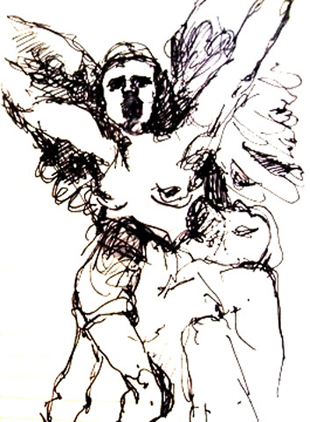LER O ARQUIVO HOJE OUT OF REDUCIONISTIC PRACTICES
Keywords:
Análise do Discurso, Leitura, Arquivo.Abstract
In his article Ler o Arquivo Hoje, Pêcheux (1982) questions the relation between the historical and psychological aspects connected to the reading of files, the mathematical and computer aspects connected to the treatment of textual documents and the increase of researches in formal linguistics, circulating around the discourse analysis. The author points to a reading based on two cultures: the literary and academic ones. The first one is, traditionally, related to the reading of files, although the second one is also able to produce this gesture. The fact is that, if we compared both ways of reading, we could show much more differences while we are relating them to the types of readers: the person who has been authorized to read, to speak, to write on his behalf and the one who has been submitted to the practice of copying, transcribing, indexing, classification and coding. Some are given to the task of producing original readings of files, there is, interpretations, and others, are given to the duty of sustaining a literal reading of documents. This contradictory movement covers a political dominance and at the same time, maintains the "power" through political acts, says Pêcheux. This reading work division implicates the relation between society and the establishment of its own historical memory.
Downloads
Downloads
Published
How to Cite
Issue
Section
License
Creative Copyright Notice
Policy for Free Access Journals
Authors who publish in this journal agree to the following terms:
1. Authors keep the copyright and grant the journal the right of first publication, with the work simultaneously licensed under the Creative Commons Attribution License, which allows sharing the trial with acknowledgment of authorship and initial publication in this journal.
2. Authors are authorized to take additional contracts separately, for non-exclusive distribution of the work version, published in this journal (eg publish in institutional repository or as a book chapter), with acknowledgment of authorship and initial publication in this journal.
3. Authors are allowed and encouraged to publish and distribute their work online (eg in institutional repositories or on their personal page) at any point before or during the editorial process, as this can generate productive changes, as well as increase both impact and citation of the published trial (See The Effect of Free Access).
Creative Commons License
This work is licensed under a Creative Commons Attribution–NonCommercial-shareaswell 4.0 International License, which allows you to share, copy, distribute, display, reproduce, completely or part of the work, since there is no commercial purpose, and authors and source are cited.



